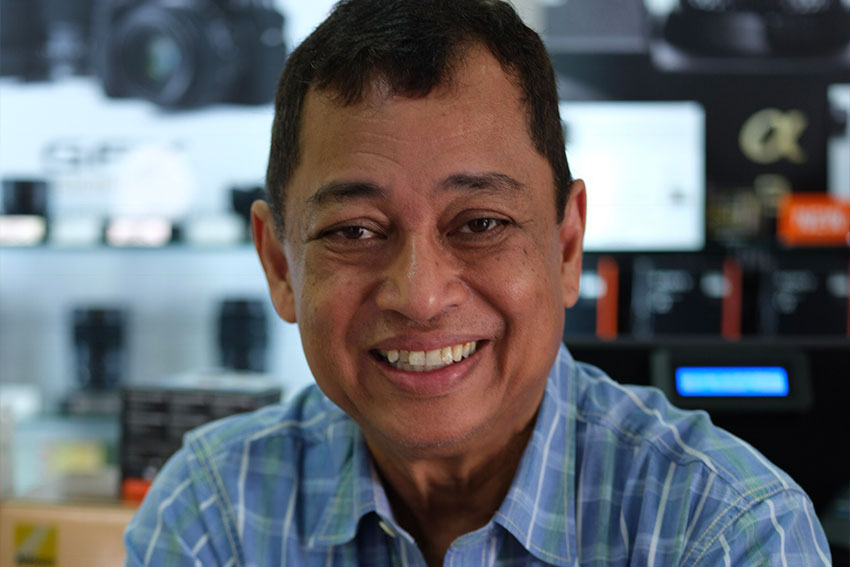An interview with Yang Berhormat Pehin Datu Singamanteri Colonel (Retired) Dato Seri Setia (Dr.) Awang Haji Mohammad Yasmin bin Haji Umar, Minister of Energy and Industry at the Prime Minister’s Office in Brunei

What is the role of the energy sector in developing the economy though job creation, wealth generation and local company development?
The oil and gas sector continues to be the main contributor to Brunei GDP, contributing around 60 percent of the country’s GDP and 9 percent of export revenues. This will help drive further economic growth.
The energy sector is governed by Government Local Business Development (LBD) Directives, which aim to maximize the economic spin-off from the energy sector activities by maximizing local content in terms of use of local good and services and as well as local employment. Since the issuance of the LBD Directives in 2011, there were 49 new local companies awarded oil and gas contracts with a total annual contract value of approximately 986 million Bahraini dollars.
The government is focusing its efforts towards attracting FDI especially for the oil and gas downstream energy sector. Through this downstream activity, Brunei is able to add more value to the produced oil and gas through the development of new refinery and petrochemical industries. This will also create the spinoff in term of business opportunities for local companies and job creation for locals.
The downstream industries play a role generating value-added products, whose prices would potentially be less susceptible to price fluctuations seen in the upstream sector. As a result, the downstream sector, continues to be developed to provide resilience against price fluctuations in the upstream sector. Brunei is seeking to develop more downstream projects can be established in the coming years.
How competitive is Brunei in attracting FDI to the energy sector versus countries such as Malaysia, Indonesia or even Vietnam?
Brunei Darussalam needs to remain competitive to ensure the sustained growth of its energy sector, especially given the significant contribution of the energy sector to the economy. We are continuously seeking to improve Brunei’s attractiveness to FDIs in the energy sector and all its priority investment clusters.
We see that Brunei has been attractive to investors in the energy sector, with the growth of the downstream sector continuing to accelerate. There is a further investment of approximately $4.7 billion from Hengyi Industries and Brunei Fertilizer Industries. Hengyi Industries has committed $12 billion to develop the second phase of its Pulau Muara Besar (PMB) refinery and petrochemical plant, making Brunei the destination of its largest foreign investment to date.
To ensure competitiveness in the upstream energy sector, activities continue to strengthen, such as exploration activities and development of oil and gas fields, and improvements in cost optimization and efficiency.
Could you tell us which are in your opinion the main reasons for this success and what result will it have on FDI levels in non-oil sector?
First of all, Brunei Darussalam has been committed to improving the ease of doing business in the country. Since 2006, Brunei Darussalam has been implementing a comprehensive reform agenda with a joint long-term vision and clear objectives to further improve the business environment to support FDI, small and medium-sized enterprises (SMEs) and economic diversification. As a result, the World Bank has named Brunei as the Number 1 most improved economy for two years running in the World Bank Doing Business Report 2016 and 2017.
The success of the reforms comes from establishing an effective whole-government delivery mechanism, with the Ease of Doing Business Steering Committee and Champion Groups comprising key government agencies. This mechanism has allowed reforms to occur at a more accelerated pace.
The improvement in Brunei Darussalam’s business environment provides potential investor confidence in Brunei Darussalam as a pro-business and pro-investment destination, and shows the Government’s support for the private sector, for both the oil and gas and non-oil and gas sectors alike. As a result, Brunei Darussalam is seeing a progressive increase in non-oil-and-gas FDIs.
Vision 2035 established an objective of non-oil sectors representing 63 percent of GDP by 2035, for which you prioritized five industries. How competitive can Brunei become regionally in those different sectors?
The development of the five priority investment sectors (Halal, Technology and Creative Industry, Business Services, Tourism, and Downstream Oil & Gas) will leverage on the unique characteristics of Brunei Darussalam in order to differentiate them. Brunei Darussalam features strong Islamic values, high-quality Halal standards, pristine untapped rainforests with a rich biodiversity, a highly educated workforce, a unique cultural heritage as well as its proximity and close cooperation with regional and international partners.
The Halal standards adopted by Brunei Darussalam are widely recognized as being of high quality in both conformance and credibility. Brunei Darussalam is one of only two countries in which the government directly regulates the Halal certification (the other being Malaysia), which is the responsibility of the Brunei Islamic Religious Council (Majlis Ugama Islam Brunei, MUIB), in order ensure the highest standards of are met.
FDIs are encouraged to establish operations in Brunei Darussalam to tap into Brunei Darussalam’s Halal standards and certification opportunities, as well as to use Brunei Darussalam as a gateway to the Islamic Market and ASEAN market.
0 COMMENTS